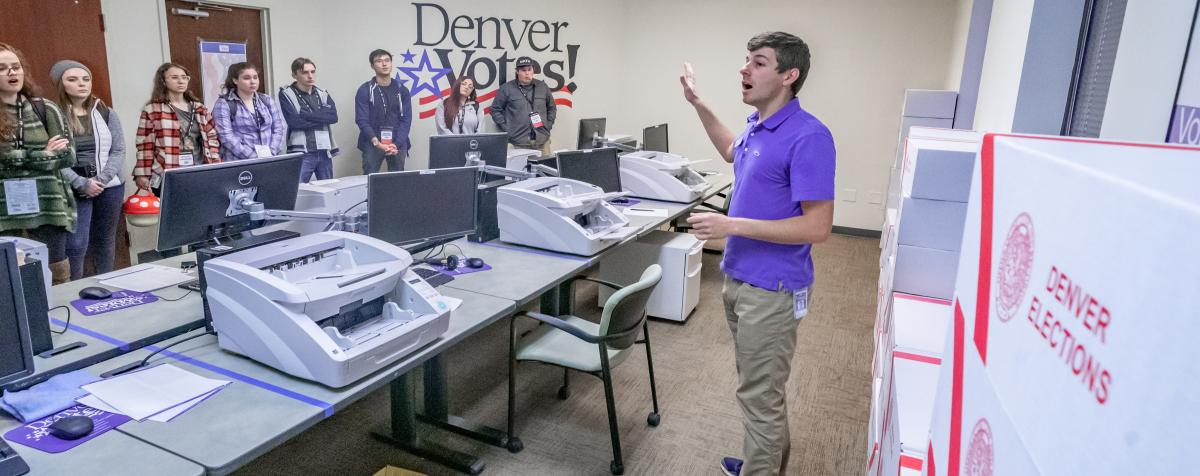Our BA in Political Science promotes an extensive understanding of politics by offering a broad course of study. You’ll analyze how people seek influence, exercise authority and justify decisions at local, state, national and international levels. In addition to studying politics, you’ll strengthen writing and speaking skills, evaluate arguments and collect, organize and interpret information from multiple sources, all while working closely with faculty engaged in cutting-edge research.
Our program offers internships, community engagement and study abroad opportunities, which help you gain practical experience, hone organizational skills and form a commitment to public service. You can also qualify for the departmental honors program and undertake an independent research project directed by department faculty. The experience you’ll gain prepares you for a variety of careers in public service, activism and advocacy, lobbying, education or corporate leadership.
Featured Courses
PLSC 1610
Introduction to Political Thought: Power, Liberty, and Justice
About this Course
This course presents an introduction to some of the key ideas and questions in the study of politics. As an introductory course, it cannot present a systematic overview of the entire study of politics; rather, it seeks to introduce students to some central concerns in the study of politics. In this course we learn about the basic principles of human conduct in social contexts and explain how social scientific methods are used to understand these underlying principles. This course counts toward the Scientific Inquiry: Society and Culture requirement.
PLSC 2235
Politicized "Ethnicity": Cross-Disciplinary Approaches to the Study of Identity Politics
About this Course
What is ethnicity? Are ethnic identities more likely to influence political outcomes than other types of identity (e.g., gender, profession, class), and if so, why? This course introduces competing concepts of ethnic identity. We analyze what is useful or problematic about each approach, and use these insights to think critically about specific cases. Specifically, we engage readings, podcasts, videos and documentary footage from political science, sociology, evolutionary biology, cognitive psychology, and legal studies. Why take this course? Gaining insight into “ethnic” identity and its relation to politics has implications for everything from self-understanding and daily social life, to political campaigns, activist tactics, and episodes of political violence. The course is conceptual and comparative and does not focus primarily on the United States. Yet, the critical thinking, reading and writing skills that you hone in the course, in addition to your knowledge of world events and other cases, will enable you to make better sense of identity politics in the U.S., as well as instances of political conflict throughout world history. The course satisfies the departmental sub-field requirement for majors in comparative/international politics. Recommended before taking this course: one introductory level course in political science.
PLSC 2410
American Government Simulation
About this Course
This course explores American politics by simulating the legislative process of the federal government. Students play either a member of the House of Representatives or a member of the Executive Branch. The simulation requires that students seek the goals related to their position. By putting theory into practice, students gain a better understanding of Washington politics. Satisfies the department distribution requirement in American politics. Prerequisite: Sophomore standing.


